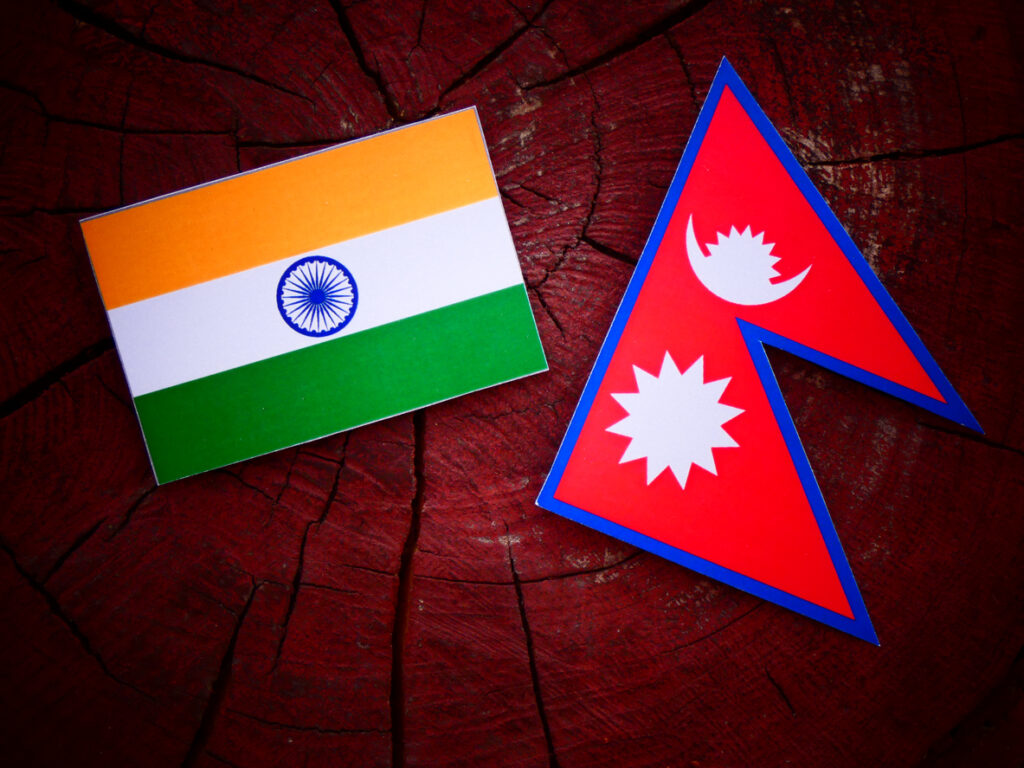India and Nepal share historic, cultural, and civilizational ties that have lasted for centuries. Our relationship traces back to the times of Ramayana as faith places the present day Janakpur as the birth place of Sita. “As close neighbours, India and Nepal share a unique relationship of friendship and cooperation characterized by open borders and deep-rooted people-to-people contacts of kinship and culture. There has been a long tradition of free movement of people across the borders.” These words can be found on the website of Indian Embassy in Kathmandu correctly summarises the relation between the two nations.
In ancient times Nepal was also considered as an integral part of Bharat. Gautama Buddha was born in Lumbini to a royal clan in Nepal. He attained Gnana (enlightenment) under a Bodhi tree in Patna and gave his first sermon was at Sarnath which is near the present day Varanasi (Kasi).
Affairs changed when British captured India. Nepal became an independent kingdom and then went on to become an independent country.
Amar Bhushan, an Ex R&AW chief mentions in his book ‘Inside Nepal’ that it was Rajiv Gandhi’s government that helped rebels to topple the Nepal’s Hindu monarchy government. The Rajiv Gandhi government had put a blockade to force the king to institutionalise democracy and had even taken then help of Nepalese communists whose original allegiance lie with China.
During UPA-1 rule too India helped communists to throw away the only Hindu monarchy in the world. This is evident in India’s support for Nepal Communists to topple the only Hindu government to facilitate the establishment of Communist rule (2004–09, when UPA government had the support of Indian Communists) which now proves to be a minor headache as India simultaneously faces COVID crisis on one hand and PLA’s intrusion into the Line of Actual Control on the other.
The tussle between the both governments isn’t new but what makes the new map row more complex is that the Nepal’s growing ties with the Chinese Communist Party (CCP) as the Prime minister of Nepal comes from a Maoist political background. Since 2015 ties between CCP and Nepalese communist parties has strengthened.
The current border row started during November, 2019 when India made official its new political map. From then on the border issue around the origin of the Kalapani river has been raised by the Nepalese government which the Indian government underplayed. This had angered the Nepalese CCP in power, a party turning out to be a proxy of China’s CCP, apparent from the fact that when Chinese Ambassador for Nepal met senior leaders of NCP to stabilise the Nepal government which was facing internal turmoil. This is said to have ignited the spark of Nepali ultra-nationalism with the Nepali Communists in its bid to unite itself, turned the political discourse against India by raking up the Kalapani issue.
Added to this, the Nepal Army opened fire near the Indo-Nepal border in Sitamarhi district of Bihar killing one Indian citizen leaving 2 others injured. The incident happened deep inside Nepalese territory. Nepal resorting to such adventurism with its natural neighbour partner at the time of a pandemic will only be detrimental to itself in long run.
The underplaying of the problem earlier by the Indian side for talks about the maps and borders has put India in the present situation. This has astounded many political observers as they can’t see any obvious reasons to lose the ties with a neighbour with whom we share deep culture, diplomatic and military relations.
Nepal cannot afford to lose its most trusted, reliable and natural partner as India serves as its artery to its economic development. Things may turn ugly as the NCP will use this as a political leverage playing nationalist cards to escape their interal scuffle with China backing the NCP. Both the governments should set aside the differences of the past and not let a third country interfering to disturb India-Nepal ties.

